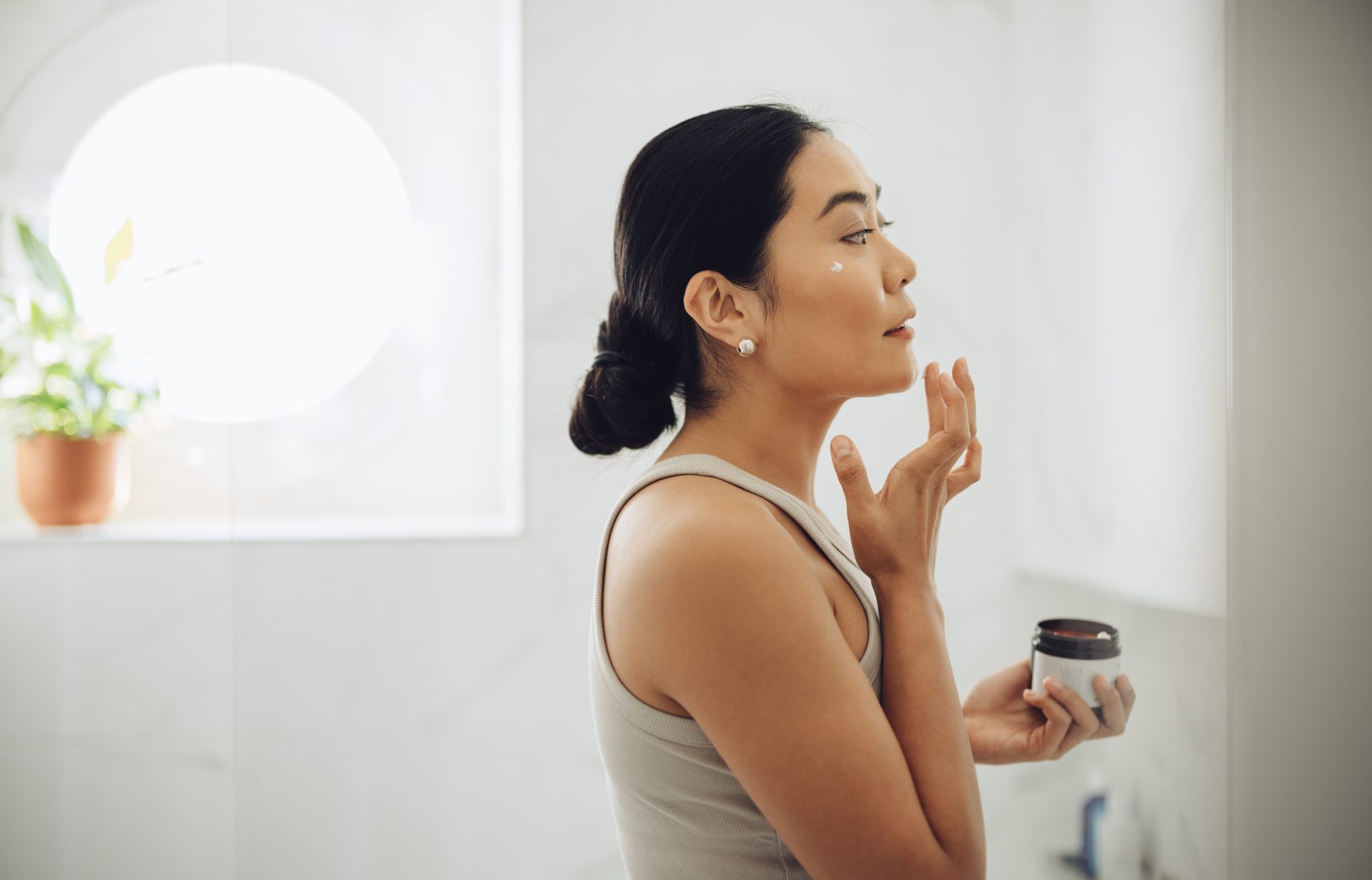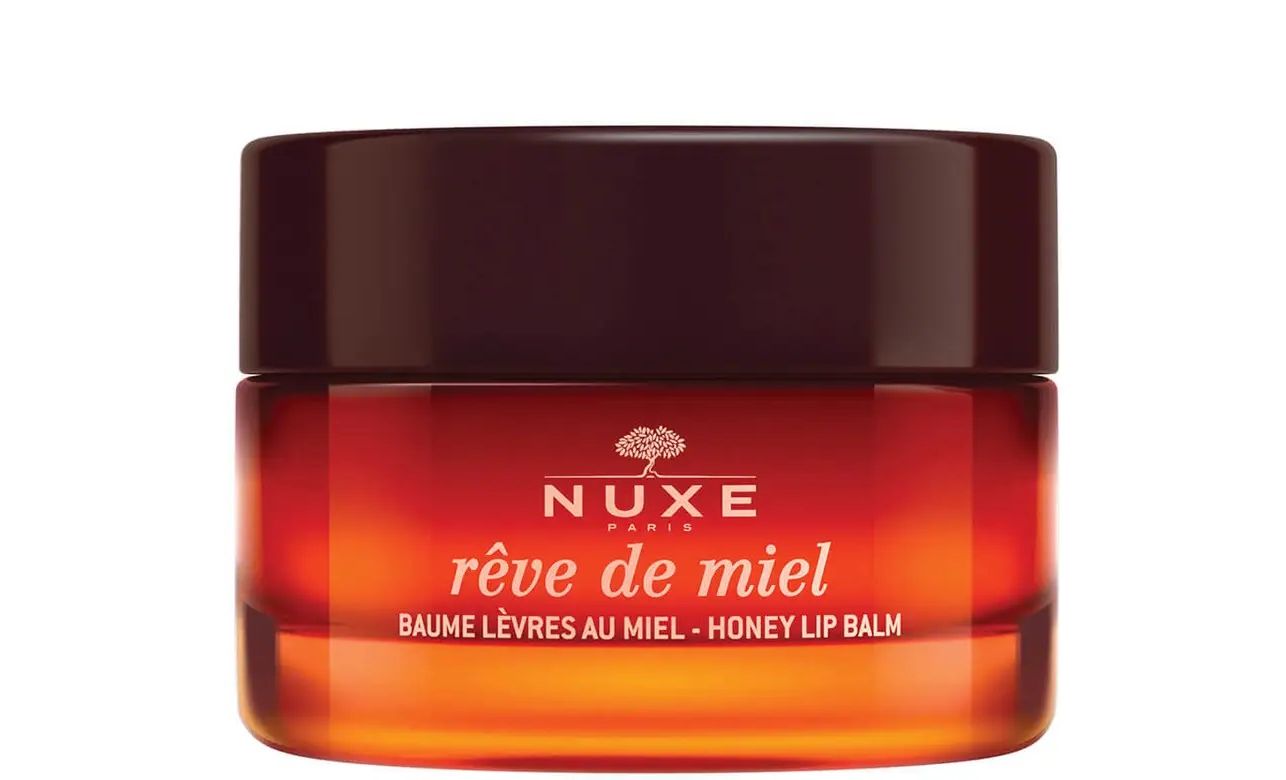Exercising outdoors in winter is great for the soul but a nightmare for our delicate skin barrier. Here’s how to avoid dry, cracked skin this winter.
The skin is the body’s largest organ, and while we tend to focus on keeping it healthy during the summer (ie avoiding sunburn), it’s during the winter that our skin can suffer the most. It’s more likely to become dry in winter, thanks to central heating, low humidity and sudden changes in temperature brought about when going from indoors to outdoors.
And while exercising outdoors comes with a host of benefits, if you regularly run, cycle or walk outdoors in winter, you’ll probably notice an even bigger impact on your skin. Tight face? Chapped lips? Cracked hands? It’s the unholy trinity of discomfort.
Luckily, all is not lost and there are steps we can take to enjoy an outdoor sweat sesh without destroying our skin in the process.
You may also like
Sweat and spots: how to avoid greasy skin and acne while working out
What is the skin barrier?
Protecting your skin starts with a healthy skin barrier – but what exactly is the skin barrier?
“The skin barrier is comprised of skin cells and lipids,” explains Emma Coleman, dermatology and aesthetic RGN.
“This combination of fatty acids, ceramides and cholesterols helps protect the skin from environmental factors like wind, central heating and low temperatures by sealing in moisture and blocking irritants.”
How to protect the skin barrier
Focus on hydration and pH balance
“Hydration is key to maintaining a healthy skin barrier. Apply moisturiser every day before adding SPF and minimise the use of active ingredients, ” says Coleman.
“It’s also important to maintain the skin’s natural pH balance to avoid inflammation, irritation and dryness. Avoid products containing sulphates, which are particularly drying and may exacerbate the problem.”
Go for rich creams and oils
While you don’t necessarily need to add loads of crazy products to your skincare routine, you do need to make sure you’re buying the correct ones.
“The best moisturisers for winter are rich creams that hydrate and balance the skin’s biome – the bacteria that live on the skin and keep it healthy,” Coleman advises.
“Products containing butters or oils – as well as arnica, which helps soothe, hydrate and moisturise – are ideal.”

Your usual lightweight moisturiser might not cut it if you’re spending lots of time outdoors in winter – try REN Evercalm Global Protection Day Cream, £40, which will soothe sensitive skin without feeling greasy. Neal’s Yard Rose and Almond Night Cream, £25, will aid the replenishment of weatherworn skin while you sleep.
If your face is still screaming, give it a boost with REN Evercalm Barrier Support Elixir, £40, which is specially formulated to help repair and strengthen the skin barrier. Or try Cha Vøhtz Hydra Glow sleep mask, £37, for an added moisture injection, to help prep skin for those chilly morning runs.
Avoid hot showers post-exercise
You should also avoid hot showers right after getting home – allow your body temperature to adapt before washing in warm water. Research shows that long showers with hot water are the worst for damaging the skin barrier.
SPF is your year-round friend
One of the worst things we can do for our skin is thinking we only need sunscreen in the summer.
“Even if you can’t feel the sun on your skin, the UV rays that lead to tanning/skin damage are still present,” says Dr Savaş Altan,medical aesthetic at Vera Clinic.
“Different types of clouds allow for different amounts of UV rays to pass through, therefore you will have a higher chance of tanning when there are fewer clouds.
“It is essential to remember that the visible sunlight is not what causes you to tan, but the UV rays that you can’t physically see.”
You may also like
SPF 100: Do you really need to use such a high sunscreen factor?
UV rays can also bounce off snow, so sunscreen is imperative. Try slapping on Ultrasun Anti-Pollution Face Fluid SPF50+, £28, or Ambre Solaire Super UV Anti-Dark Spots and Anti-Pollution Face Fluid SPF 50, £8.
Don’t forget your lips
Chapped lips aren’t the best Christmas party accessory, but sadly, they’re a risk when exercising in the cold.
“Many people make the mistake of forgetting to protect their lips when exercising outside, but the skin on your lips is much thinner and more delicate than other parts of your body, and it’s usually more exposed,” explains Dr Altan.
“Lips become chapped as they do not have the oil-producing glands that are found over the rest of the body. Putting lip oil on will prevent dryness, or if your lips are already dry and cracked, try a thicker lip balm.
“It’s also important to use SPF lip balm – even in winter – as sun damage can worse chapped lips.”
My go-to is Nuxe honey lip balm, £12, which repairs lips rather than just sitting on top of them – meaning you eventually need to use it less frequently and it lasts ages.
If you fancy giving lip oil a go, try Charlotte Tilbury Magic Lip Oil, £28, and for SPF protection, there’s Ultrasun lip protection SPF30, £8.

It’s not all about your face
I’m very guilty of neglecting my digits in winter, ending up with craggy, old witch hands; this year, however, I’ll be taking precautions. Protect your hands with gloves while running and cycling – your regular gloves won’t hurt, but if you can afford to invest in a specialist pair, do so, as these will likely be breathable and moisture-wicking – perfect for sweat.
Lululemon Run For It All Gloves, £35, are a lightweight option best for mild days, featuring water-repellent fabric with a brushed fleece lining, reflective details, and tech-friendly fingers, so you can still use your phone. For colder days, try Sweaty Betty Therma Run Gloves, £35, with a warm but breathable brushed fabric, made from water-repellent, recycled polyester, extended cuffs to keep wrists warm, and tech-friendly thumbs and index fingers.
How to deal with windburn
If you’ve taken all the precautions and still have a sore face? You may have windburn.
“Windburn occurs when the skin becomes red, irritated and chapped after spending time in cold, windy air,” explains Coleman.
“It’s important at this stage to give the skin an intensive shot of moisture while also reducing the irritation. Avoid gel and water-based cleansers, along with exfoliants and toners.
“Drink plenty of water and apply moisturiser every few hours.”
Images: Getty
Source: Read Full Article
